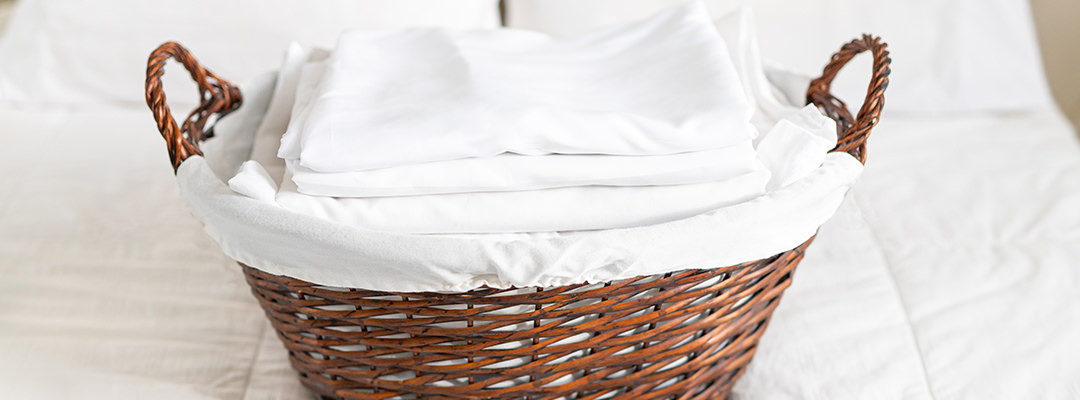Dirty, grimy, smelly bedsheets? No, please. Even for you, it’s inconceivable. Everyone shudders at the sight and feel of murky beddings because it’s aggravating and deeply unhygienic. Besides, coming back to bed after a long day to sheath from the cold night in putrid bed sheets is highly unthinkable.
More often, we overlook our bedsheets as we pile the dirty clothes for laundry. Whether you do this deliberately or obliviously, cleaning your bed sheets should always be your priority – or change them regularly. Therefore, how often should you wash or change your bamboo fiber or cotton bed sheet, and why is it important?
Why is It Important to Wash Your Sheets?
Regularly washing your bed sheets acquits you of a lot of trouble. There’s no ideal time to clean or change your bedsheets, and if you can do it as often as you can, the better. However, the task can be hectic for some people, especially if the beddings are weighty and need heavy scrubbing.
As you sleep, your body secretes oils and sweat that wipes against the bedsheets. Besides, if you have health conditions that cause you to sweat, including diabetic hypoglycemia and hyperthyroidism, changing your sheets often is a no-brainer.
Dirt and grime are synonymous with scruffy bed sheets, and this creates ideal micro-environments for bacteria and fungi to build up and nourish. Unfortunately, it makes you more susceptible to infections that will force you to see a doctor sooner than you imagined.
In addition, sleeping on dirty bed sheets disrupts your peace as you sleep and makes it bumpier. You definitely won’t wake up feeling satisfied, and instead, you would wish the nights were longer. Conversely, clean bed sheet linen with sweet-smelling freshener is best to make your sleep satisfactory and fulfilling.
How Often Should You Change Your Sheets?
Somnologists recommend cleaning or changing beds sheets every week, at least once. If you leave them longer, they attract dust mites that will make you uncomfortable in bed. While these mites are harmless in themselves – except for some minor itching – their droppings and fecal matter are what attract fungi, bacteria, and other harmful micro-organisms.
The frequency of changing or washing your bed sheets depends on some factors that include:
1. Asthma and Allergies
Dust, dirt, and grime trigger severe asthma attacks, and if you have a history of this condition, using scruffy bed sheets is inappropriate for you. You must wash them even more regularly, especially if you share the bed with someone who sweats a lot.
If you’re also allergic to dust and pollen, sleeping on cleaner bed sheets will do you good. Dust mites can also trigger allergies, giving you a rollercoaster ride of sneezing, itchy eyes, and post-nasal drips throughout your sleep. Therefore, make it a habit to change your sheets every week.
2. If You Share Your Bed with Someone
The idea of sharing your bed in itself means that you will be shedding dead skin, dander, and oils, and this doubles the dirtying process. If both of you binge-watch together on the bed while cramming down biscuits and chips, the chances are that you will end up with dirty bedsheets. The dirt could attract germs and bacteria that could predispose you to infections. If this is the case, you might have to be changing them more often.
3. If You Have Oily Skin and Sweat Excessively
If you have naturally oily skin or you have health conditions like diabetes and thyroid problems that cause hyperhidrosis, washing your bed sheets more often is essential. Oils and sweat are ideal mediums for bacterial and fungi growth that expose the high risk of infections.
4. Sharing Your Bed with a Pet
Pets are usually cuddly and will hop onto your bed every time you sleep. Besides, if you’ve made it a habit sharing your bed with them, there’s no way to make them stay away. While on your bed, fury pets shed hairs and dead skin as they scratch and caress themselves, which serve as dirt on the linen. Hence, washing your bed sheets at least once a week will serve you well.
5. When You’ve Been Ill
Typically, illnesses come with a fever that drenches you in sweat and makes your bedsheets dirty. As a result, bacteria build-up may predispose you to further infections. To prevent this, wash your bed sheet linen or change them as often as possible to avert the worsening of your condition. Even after getting better, make it a habit to clean or changing your bedsheets to avoid similar illnesses.
Benefits of Keeping Your Sheets Clean
Prevent Worsening of Asthma Attacks
If you clean your bed sheets more often, health conditions, including asthma attacks and allergies, will recede. Dirty bedsheets harbor dust, dirt, and pollen, which knock you out quickly if you experience these health issues.
To Prevent Eczema
If the sight and thought of eczema frighten you, avoiding dirty bed sheets is the ideal thing to run to. Eczema gives you patches of itchiness, skin swelling, and cracking. It is usually uncomfortable and will keep you awake all night. However, cleaning your bed sheets frequently offers the luxury of good sleep and keeps all the demeaning symptoms of eczema at bay.
To Prevent Contact Infections
If you share your bed with someone with a skin infection, you will likely be affected as well. Most skin infections are transmitted through body contact, and dirty bedsheets increase that likelihood. However, it’s not like you will be exempted from contacting skin infections from the other person, but the possibility will reduce substantially. Therefore, washing or changing them more often will be good for you.
A Good Night’s Sleep
It goes without thinking that clean and cozy bed sheets give you smoother and uninterrupted sleep throughout the night. Every human is repulsive to dirt and reactive to grime in many ways, and one significant case is having bumpier and constantly interrupted sleep. Therefore, make it your effort to clean your bed sheet frequently, at least every week, for uninterrupted sleep.
The Best Way to Wash Your Sheets
While tossing your bed sheet in the laundry bucket and washing it with a good detergent can be good, cleaning them the most appropriate way is better. An ideal way is using hot water. The degree of hotness of the water is proportional to its ability to kill more bacteria and germs in the bedsheet. Therefore, you won’t have to worry about them nagging you in your sleep.
If you usually hang your linen out in the sun to dry, please do it on the hottest day. Prolonged exposure to air and hot temperatures also kills and removes germs and bacteria that may cause you illnesses and infections. Ironing your bed sheets will also keep you safe from contact infections and persistent colds.
For warranted acquaintance from infections and illnesses and sound sleep as well, it’s prudent to clean your bed sheets at least once a week. If health conditions such as asthma and allergies rain hard on you, cut it into less than a week. If possible, have multiple pieces of bed sheets so that changing them becomes more manageable.
Did you like it?4.4/5 (24)





